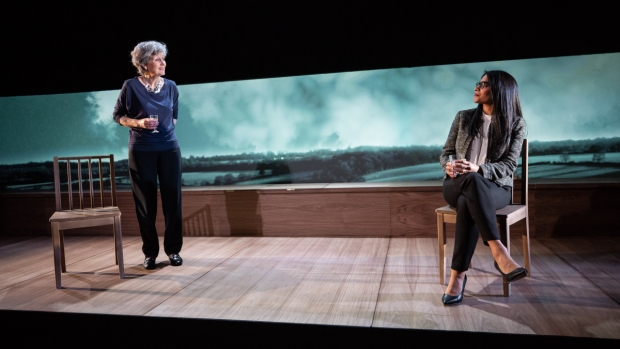Bloody Difficult Women at Riverside Studios – review
Tim Walker’s drama continues its London run until 26 March

© Mark Senior
Veteran Tory politician Ken Clarke notoriously described the Prime Minister at the time, Theresa May, as "a bloody difficult woman", not realising that his remark would end up being broadcast and widely quoted. Now journalist and author Tim Walker uses a version of that opining statement to title his engrossing debut play.
Bloody Difficult Women is set in the aftermath of the 2016 EU referendum, and centres on the legal case that businesswoman and philanthropist Gina Miller brought before the High Court to ensure that Article 50 (which begins the process whereby member states can withdraw from the European Union) couldn't be triggered without Parliamentary debate. She won, causing embarrassment to the government and prompting the vitriol of Tory-supporting elements of the press.
In a programme note, Walker states that Miller has become a personal friend, so perhaps inevitably, she comes off rather better in the play than our last Prime Minister. Amara Karan invests Miller with a beguiling combination of warmth, steel and zeal, and if her line delivery is a little stilted at times during dialogue scenes, she becomes authentically compelling when delivering the impassioned public addresses.
That said, Theresa May isn't represented unsympathetically. Jessica Turner brilliantly recreates the round-shouldered, subtly stooped gait, and slightly quavery vocal timbre that sounds as though it could tip over into hysteria at any moment. Watchful and slightly awkward, this Mrs May knows that in being tasked with delivering a Brexit she doesn't truly believe in (the real May famously campaigned for Remain) she has been handed a poisoned chalice. Her sad observation that "this isn't the party I joined" carries authentic poignancy, and the dismissive references to Boris Johnson and his unsuitability for high office ("he who must not be named") provoke bitter laughter.
The real villain of the piece here is Paul Dacre, the former editor of the Daily Mail, who emerges, in Andrew Woodall's enjoyably nasty, high energy performance as a foul-mouthed Mephistopheles, wielding way more influence than somebody in his position should have any right to. On the other side of the coin is Gina's husband, Alan Miller, kind, humane and successful, who is lent a lovely serenity and sensitivity by Edmund Kingsley.
Stephen Unwin's cool, spare staging felt a little under-rehearsed on press night but will no doubt slicken up as the run progresses. Walker's script is funny and ferociously well informed, a consistently engaging combination of riveting debate, reportage, and domestic drama. It's particularly thought-provoking in its depiction of press manipulation on the fabric of public life.
Given that history currently seems to be moving at a bewildering pace, there is something almost cosily nostalgic at times about this look back at the nation's recent past, where rumblings of trouble ahead were present but not at the forefront of everyone's minds. Walker has crafted a vital new play that recalls some of David Hare's 1990s state-of-the-nation pieces for the National Theatre: it's witty and civilised but with a brutal undertow. Recommended.












